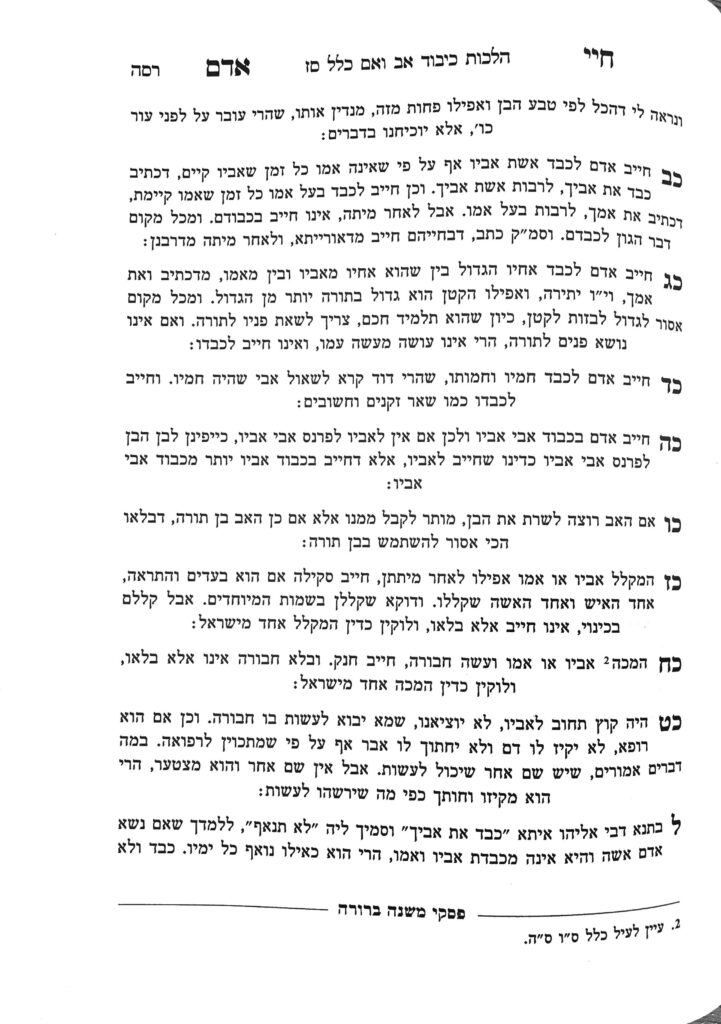We have finished siman 30. The Chayei Adam ends the siman by referring the learner to oisiyos in Sefer Chassidim, where the Sefer Chassidim discusses kibud av v’eim.
In os 338, the Sefer Chassidim discusses a case where a father wishes their son should learn Torah and the father will work in the son’s stead. The Sefer Chassidim writes that, although it would seem inappropriate for a son to learn at the expense of their father working, if it is the wish of the father, the son should listen. We have learned (shiur 1358) of the concept that retzono shel adam zeh kevodo, that listening to a person’s will is a form of kavod, and apply the concept here as well.
The Sefer Chassidim adds that the son should listen to the father’s directive and learn even if people around them will look at the situation and blame the son for making the father work. In fact, he writes that commensurate to the amount of embarrassment caused to the son for this arrangement will be his reward in shamayim. Even if the father has given this directive specifically to embarrass the son in the eyes of others, the son should continue to learn. The son is doing something beneficial, and the greater the embarrassment for a mitzvah, the greater the reward.
In os 339, the Sefer Chassidim writes of a man who was a nasi and would stand up for his father. Naturally, once the son would stand up, anyone else in the room would stand up as well. The father became uncomfortable with the level of kavod. The Sefer Chassidim writes that the father can be mochel his kavod, and exempt the child from standing up (as we have learned; see shiur 1326). However, if others will look at the nasi and think that they do not need to stand up for their parents, without realizing that the nasi’s father was mochel the nasi, the father should allow the son to continue to stand up for him.
Summary
- If a father wishes that their child learn Torah, and the father will work in the son’s stead, the son should listen to the father and go learn, even at the expense of embarrassment from others.
- A father who wishes to be mochel on his kavod, and exempt his son from standing up for him, should not do so if others will mistakenly learn from the son that they do not need to stand up for their own parents.



